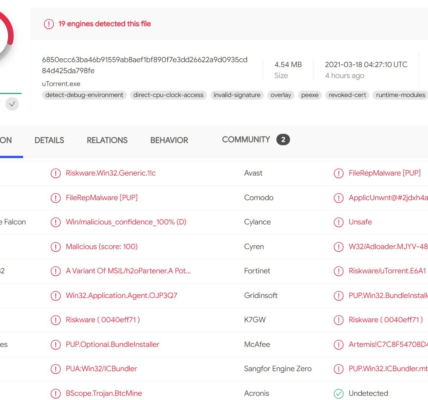The recent blocking of TorProject.org by Russian ISPs follows a string of actions aimed at restricting access to the Tor network within the country. This decision comes amidst allegations that Tor enables users to bypass censorship measures and access sites that are otherwise blocked, including those on the dark web.
Tor, known for its privacy-focused and anti-censorship features, has faced scrutiny from authorities worldwide due to its potential use by individuals engaged in illicit activities. However, Tor has also been instrumental in enabling freedom of expression and access to information for individuals living under oppressive regimes.

The move by Russian authorities to block TorProject.org highlights the ongoing tension between privacy advocates and government authorities seeking to control online activities. As internet censorship continues to escalate in various regions, the debate over the balance between security and individual freedoms remains a contentious issue.
Russia’s ongoing efforts to control internet access within its borders have taken another turn with the recent development of systems aimed at denying access to specific websites and services.
From cracking down on copyright infringement to curbing the spread of terrorist propaganda, Russia has been relentless in its pursuit of online censorship, leaving little room for unrestricted access to information.
Despite initial attempts by local users to bypass censorship using tools like VPNs, even these have come under scrutiny and threat from authorities, leaving individuals scrambling for alternative methods to access unrestricted content.
Tor, long heralded as a bastion of online privacy and freedom, has also found itself in the crosshairs of Russian authorities. Efforts to block Tor have been underway since December, with reports of certain Tor nodes being targeted using the TSPU (technical tools to counter threats) system.
The blocking measures, while not yet widespread across Russia, have already begun to impact certain regions, notably Moscow. ISPs like Rostelecom, Beeline, Tele2, and NetByNet have reported anomalous measurements, indicating the implementation of blocking measures.
Lawmaker Anton Gorelkin has openly supported the blocking of Tor, describing it as “an absolute evil” and a facilitator of illegal activities. His sentiments echo the government’s stance on Tor’s role in enabling illicit activities, despite its intended purpose of fighting censorship.
In a further blow to internet freedom, Russian authorities have blocked access to the main domain of the Tor Project, torproject.org, citing the dissemination of prohibited information. With Russia being the second-largest user base for Tor, the move is expected to have far-reaching implications for individuals seeking to maintain online privacy and access uncensored information.
As censorship measures escalate in Russia, the battle for online freedom intensifies, with individuals and organizations alike facing increasing challenges in circumventing restrictions and preserving digital rights.

With the Tor Project unlikely to comply with Russian demands, it’s evident that countermeasures are necessary to maintain access to the network.
As a temporary solution, the Tor Project is redirecting users to its mirror site hosted by the EFF. Additionally, users are encouraged to set up Tor bridges, with a substantial increase in their deployment anticipated to mitigate the impact of Russian censorship. Installing the OONI Probe app is also recommended to monitor how ISPs are implementing blocking measures.
International digital rights and human rights organizations are urged to exert pressure on the Russian government to reverse the censorship, underscoring the importance of defending online freedoms and access to information on a global scale.





